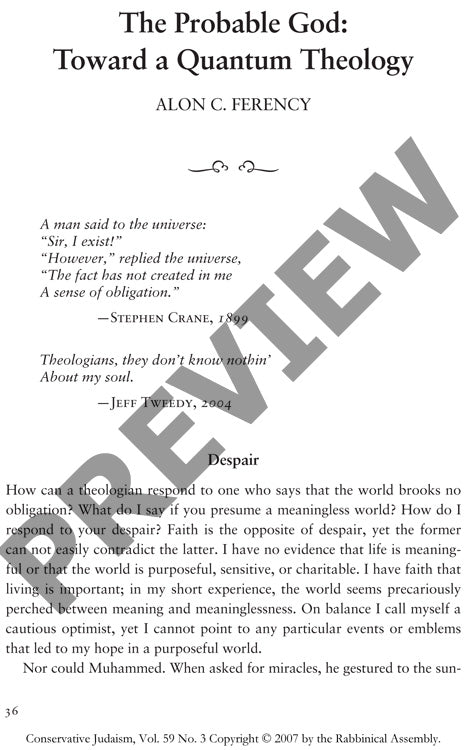The Probable God Toward a Quantum Theolo
Couldn't load pickup availability
What if God exists not as an absolute presence or absence, but as a quantum probability - neither fully here nor gone, but dwelling in a state of perpetual possibility? Drawing parallels between divine experience and quantum mechanical principles, a "quantum theology" emerges that conceptualizes God as indefinite rather than finite or infinite. This framework addresses the theological challenge of reconciling faith with apparent meaninglessness and suffering by rejecting traditional notions of divine omnipotence. Building on Paul Tillich's distinction between faith and belief, God exists in a state of "occultation" - similar to how subatomic particles exist as probability distributions rather than fixed locations. Through metaphorical analysis comparing divine presence to electron probability clouds and bee distribution patterns in meadows, the divine can be mapped probabilistically rather than located definitively. Humans experience God through moments of transcendent beauty and meaning that pierce finite existence, yet these encounters cannot be predicted or sustained. This probabilistic divine reality carries specific human obligations: attending to suffering, providing testimony through meaningful action, and choosing values worth living and dying for. The quantum theological model preserves divine significance while acknowledging the world's apparent randomness and the inability to demonstrate clear divine intervention, offering a response to existential despair through probabilistic rather than certain divine encounter.

More Information
-
Physical Description
-
Publication Information
Published 2007
ISBN
-
Publication Credits
Alon Ferency

